I Was Denied My Sick Leave Because I Couldn’t Find a Replacement
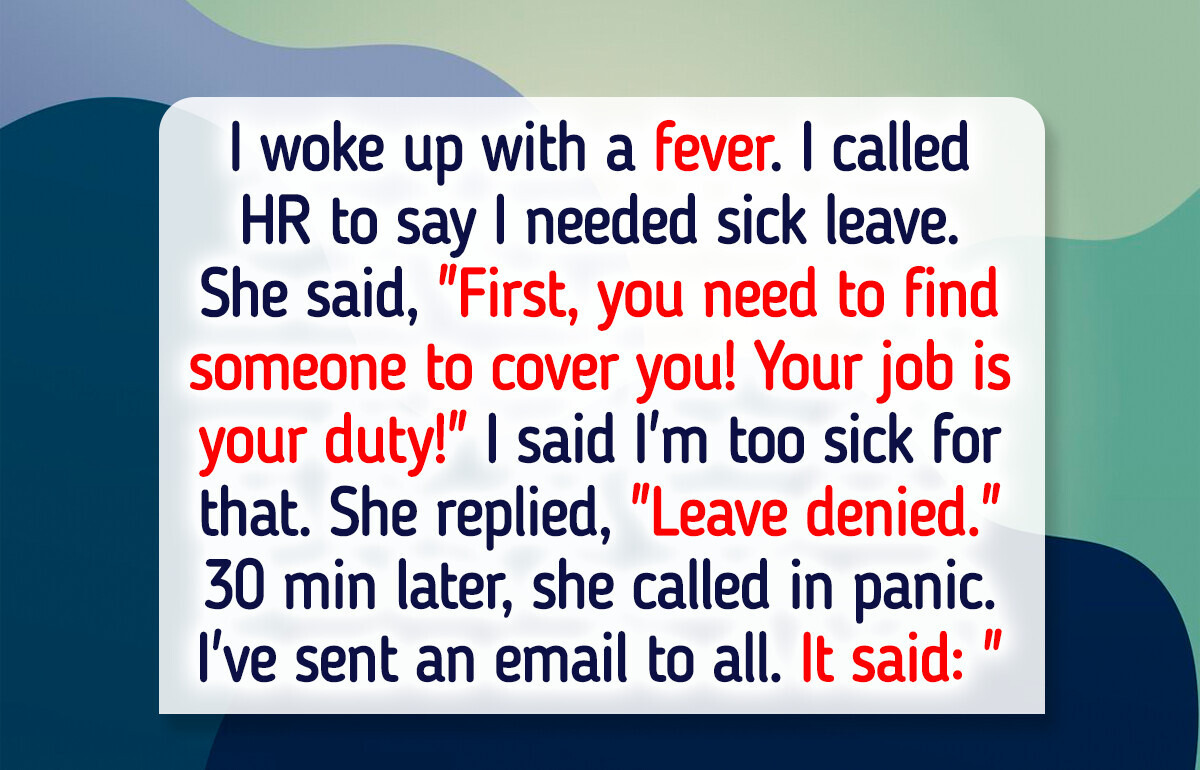
Many workers still face unfair pressure at work, especially when companies forget their employees are real humans with real needs. Situations like these raise important questions about respect, support, and basic rights in the workplace. Recently, someone sent us a letter sharing an experience related to this issue.
Nicole’s letter:
Dear Bright Side,
I woke up with a fever on Monday.
I called HR to say I needed sick leave. She said, “First, you need to find someone to cover you! Your job is your duty!”
I told her that I’m too sick for that. She replied, “Leave denied.”
I laughed, “You win!”
30 minutes later, she calls me back in panic. That’s because I’d sent everyone in the office an email.
It said, “Advice to all my colleagues: don’t you dare get sick, because our company forgot it hired humans!”
I even attached a photo of myself in bed with a fever.
Flustered, HR asked me to send an apology and retract the email. The company board had seen it and was terrified it might go viral and hurt their image. They even offered me 3 days of paid leave to “recover.”
I stood my ground and said I’d done nothing wrong. I was reacting to what she told me, which was clearly outrageous.
Now I’m wondering if I went too far. I wanted this to be a clear lesson, so management understands our rights shouldn’t be ignored.
Am I wrong?
Nicole
Thank you, Nicole, for sharing your story with such honesty and clarity. Your situation is not only compelling but raises important questions about workplace humanity. We appreciate the courage it took to write in, and we’ve prepared thoughtful advice to help you navigate what happened.
Turn Your Email Into a “Case Study Moment”.

There is absolutely nothing wrong with the way you worded your email. Don't worry about the other comments, they are probably all HR reps taught the same load of B.S.that tries to keep employees under their boots. You are NOT responsible for covering you shift when calling in sick. Thats what supervisors and managers are paid to do. The fact that they were quick to offer you 3 days off to recover shows how fast they wanted to cover their butts. Well done. 👍👍👍
Instead of backtracking, reframe your viral-ish email as a professional case study about sick-leave culture.
Write a calm, factual follow-up note explaining the timeline: you were feverish, HR denied leave, and you reacted as a human under distress. Position it as an internal learning opportunity, not a rebellion.
This protects your integrity while giving the board a face-saving narrative. Companies love “culture improvement stories,” especially when their reputation is at stake.
Document Everything and Build a “Humanity File”.
Your HR rep made a serious procedural mistake by demanding you find your own replacement while sick. Create a detailed record: timestamps, quotes, screenshots of your fever photo email, and HR’s frantic callback.
Title it something neutral like “Sick Leave Incident Summary.” If management later retaliates, you’ll have a clean paper trail rooted in facts—not emotion. This quiet preparation empowers you without escalating anything publicly.
Propose a Sick-Leave Response Simulation.

Once again the author has written incorrectly. This is entirely about blame. HR is to blame for their response saying that you have to find somebody to cover when you're sick. And you are to blame for sending a passive aggressive email. The appropriate response by the company would be to terminate you not for insubordination but for inappropriate conduct. Additionally, under current woke regulations and interpretations it can be seen as creating a hostile work environment because you shared a personnel action.... And some people that may go on the read my comment might think I'm being a little extreme but to be honest and fair there are some of us and myself included that do not share any personnel information with their co-workers that includes details about time off, sick leave: unless I'm in the hospital and then I only state that I was in the hospital and I'm still recovering, pay and benefits. This last one is very important because while the law says you can talk about your pay with your coworkers what the law doesn't cover and what the courts are interpreting as an employer right is to prevent you from discussing non-work items while on company time or on company property. Talking about your pay is never appropriate while you are working. Once again it can be seen as creating a hostile work environment and I for one find such conversations offensive and disgusting. Now to be honest and fair I worked in the federal government so my GS grade and step was public knowledge however my pay itself was not. So I started as a gs7 step 1 economist or gs-0110-07/01 and I finished up as a GS -0110-12/2. I left.. that is public knowledge my pay my time off accrued etc is not nor did I have a desire to discuss payment bonuses or anything else and the reason for that is there was a great discrepancy in our organization in terms of paying bonuses in the federal government if you got a fully successful you were not required to get a bonus but some people did and some people didn't and it was basically a situation where the in crowd got bonuses and everybody else got nothing there was nothing you could do about it because they were playing by the rules and the only thing that discussing bonuses and pay did was get people upset. Other people especially stupid young people think that pay transparency is important but look at it from this angle: I worked at a retailer for 15 years starting in 2006 and ending in 2021. When I first got hired, starting pay was $9.75 an hour. Towards the end of my tenure because of the state laws and the People's Republic of Massachusetts the minimum wage was $15 an hour and there was no more overtime. So people were coming in making $15 an hour prior to the law taking effect and I who had been there all those years is making $14.85. it's comparing apples and oranges the company did raise our pay for those of us that had been there based on our tenure and I was making 1612 an hour versus the people coming in at $15 an hour. Then again since I was a part-time weekend employee working Friday night Saturdays and Sundays my hours got cut in favor of the full timers and new people so it's a dual engine sword. People bitched and the company responded by raising pay but cutting hours which resulted in the net loss for everybody. Work is a game you need to learn to play it I didn't learn until it was too late in the federal government and when I left the federal government and moved in the healthcare it was beset with liberals who already made up their mind and there was no way to work your way into their click especially if you affected their little woke feelings just by existing...... Sorry Arthur you're giving the wrong advice both parties are in the wrong but the employee should be terminated for their email and the authority would hold it up both the nlrb and the flra as these types of cases have been adjudicated almost entirely in favor of the employer
Your story exposed a structural failure, not a personal conflict. Instead of arguing over blame, propose something innovative: a mock scenario where an employee falls ill suddenly and HR must follow proper protocol.
Companies adore anything labeled “simulation,” “audit,” or “stress-test.” It shifts the spotlight from your email to systemic improvement. Plus, it subtly shows them how unprepared they truly were, without you having to say another sharp word.
Show the Board You Reflect Employee Reality.
You unintentionally became the voice of how every worker secretly feels about sick leave. Use that momentum. Without apologizing, offer to give anonymous feedback the team has shared with you since the email, colleagues likely reached out, shocked that HR denied a fevered employee.
Present yourself not as a troublemaker, but as someone taking the temperature (pun intended) of employee morale. Boards pay attention when one person reflects a silent majority.
Luckily, the world isn’t only made of tough moments and stressful days. Every now and then, life surprises us with acts of genuine kindness that feel almost magical. These small gestures can restore our hope and remind us how powerful compassion really is. Here are 12 stories that prove quiet kindness is stronger than we think.
Comments
You don't need to REFRAME ANYTHING! It is NOT your responsibility to cover the shift if you are ill. If you wanted to take specific time off, you can ask a coworker to SWITCH SHIFTS with you. HR knows better and they are scrambling now, because of the way THEY BEHAVED. If you want to take the 3 extra PAID DAYS OFF, do it. If you do retract the email, have them PUT IN WRITING, that YOU are not responsible for covering the shift if you have an emergency or are ill. HR is ALMOST NEVER on the employees side, in the long run. They are there for one reason, to PROTECT THE COMPANY. You know that they are going to give you grief now, no matter what you do.
Your company should have a sick day policy. Leave should be reserved for absences over 3 days. Not sure why your company would want to risk getting everyone else sick. You could make a deal that you will retract only if and when you see an illness policy that makes sense
If it was me, I’d show up at work, obviously very ill and apologize to all my coworkers and clients for spreading my germs around. I would also share all my symptoms so they would know what to look for when they got sick. Oh, yeah, and I wouldn’t forget to explain that I had asked for sick leave but had been denied.
I would have gone in and vomited all over the place!
Did we not in the last 4 years have COVID? People actually died. Have they forgotten that fast?
Related Reads
I Refuse to Let My Parents Use My Success Story After They Called Me a Failure
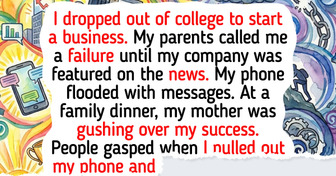
I Was Denied My Days Off, So I Beat HR at Their Own Game
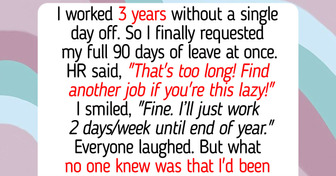
I Let My MIL Join Our Family Trip—And It Turned Into Chaos
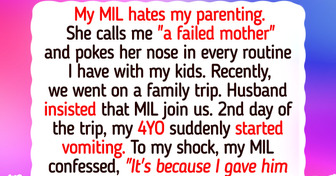
I Stopped Answering Work Calls After 5 PM, My Boss Took Me to HR
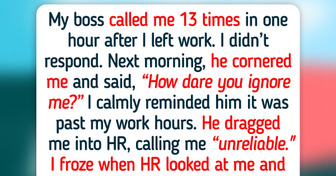
I Refuse to Work With the Boss Who Destroyed My Career —Or Keep My Mouth Shut

12 Grandparents Who Prove They’re the Heart of a Family

12 Stories That Remind Us Kindness Is the Oxygen for Drowning Hearts
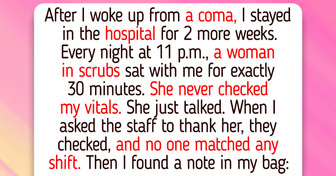
12 Moments That Remind Us to Stay Kind, Even When the Entire World Isn’t

I Refuse to Let My Sister Hijack My Pregnancy Announcement
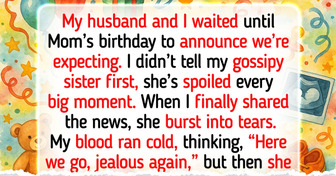
15 Moments That Show Kindness Is Quiet but Changes Everything

15 Success Moments From Strangers That Deserve All the Golden Buzzers in the World
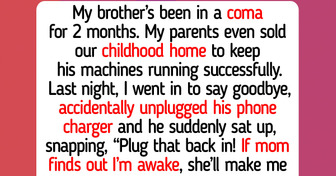
I Refuse to Help My Pregnant Sister, and I Don’t Feel Guilty



